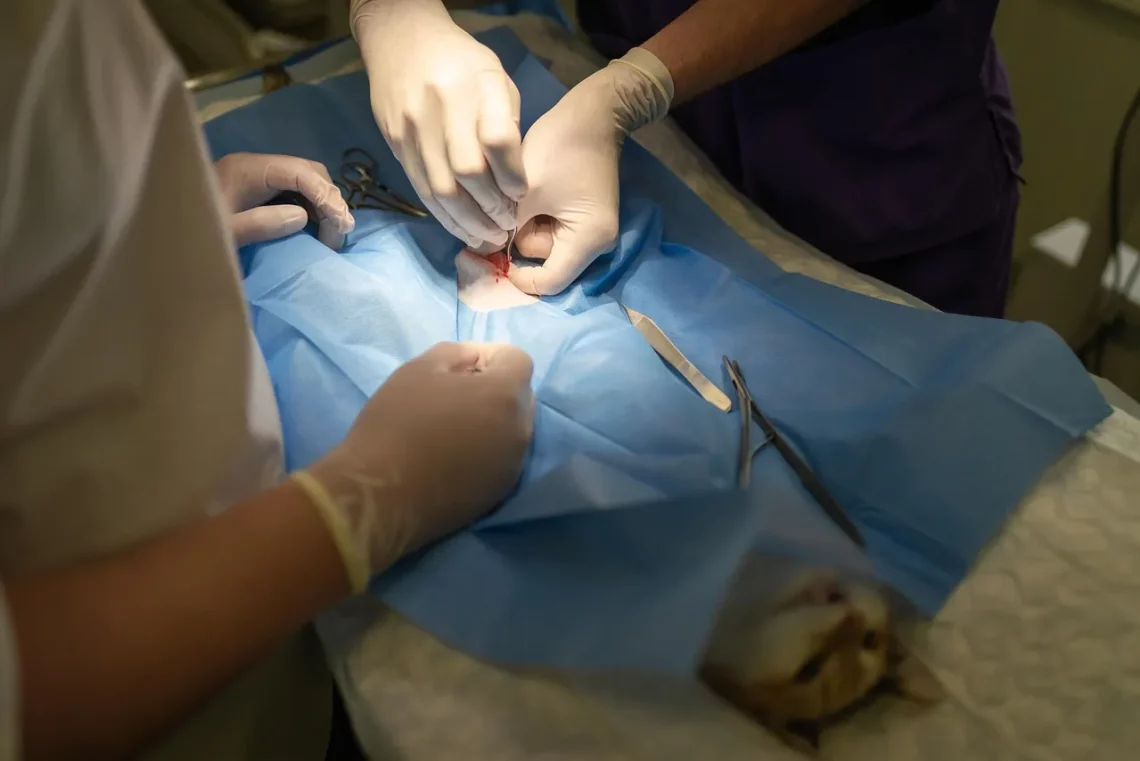
Affordable Veterinary Care: Vets That Accept Payment Plans
Veterinary care is an essential aspect of pet ownership, yet it can often be a financial burden for many pet owners. The responsibility of ensuring the health and well-being of our furry companions can sometimes lead to unexpected expenses, especially when it comes to emergency situations or specialized treatments. Unfortunately, not everyone has the financial flexibility to cover these costs upfront. This is where affordable veterinary care comes into play, providing solutions that can alleviate the financial pressure associated with pet healthcare.
In recent years, the veterinary industry has seen a shift towards more accessible payment options, including payment plans that allow pet owners to manage their expenses more effectively. This approach not only enhances the accessibility of veterinary services but also ensures that pets receive the care they need without delay. As the trend continues to grow, more veterinarians are recognizing the importance of offering flexible payment options, making it easier for pet owners to prioritize their pets’ health without the added stress of financial constraints.
In this evolving landscape, it is crucial for pet owners to understand the various options available to them. From payment plans to credit options, there are numerous ways to ensure that your beloved companion receives the necessary veterinary care without breaking the bank. As we delve deeper into this topic, we will explore the different avenues available for affordable veterinary care and how they can benefit both pets and their owners.
Understanding Veterinary Payment Plans
Veterinary payment plans are increasingly becoming a viable option for pet owners facing unexpected medical expenses. These plans allow owners to spread out the cost of treatment over a specified period, making it more manageable. It’s essential to understand how these plans work and what to look for when considering them.
Typically, a veterinary payment plan will require a down payment followed by monthly installments. The terms of these plans can vary widely, so it’s crucial to read the fine print and understand any interest rates, fees, or penalties involved. Some veterinary practices partner with third-party financing companies that specialize in pet care loans, which can offer more competitive rates and flexible terms.
When considering a payment plan, it’s essential to evaluate your current financial situation. Look at your monthly budget to determine how much you can realistically allocate toward your pet’s care. Additionally, consider the total cost of treatment and how it fits into your financial landscape.
It’s also important to communicate openly with your veterinarian about your financial concerns. Many vets are understanding and may offer tailored solutions that work for both parties. Some practices may even be willing to negotiate payment terms or suggest alternative treatments that are more affordable.
Moreover, some veterinary clinics offer in-house financing options, meaning they manage the payment plans directly without involving third-party lenders. This can simplify the process and make it easier to navigate.
Overall, understanding veterinary payment plans can be a game-changer for pet owners. By taking the time to research, communicate, and plan, you can ensure your furry friend gets the necessary care without the overwhelming financial burden.
Benefits of Affordable Veterinary Care
Affordable veterinary care comes with a multitude of benefits that can enhance the overall wellbeing of both pets and their owners. One of the most notable advantages is the ability to provide timely medical attention. When financial constraints are minimized, pet owners are more likely to seek veterinary care as soon as they notice potential health issues, leading to early diagnosis and treatment.
Preventive care is another significant benefit associated with affordable veterinary services. Regular check-ups, vaccinations, and dental cleanings are crucial for maintaining a pet’s health. When affordable options are available, pet owners are more inclined to keep up with these essential services. This proactive approach not only contributes to a pet’s long-term health but can also reduce overall veterinary costs by preventing more severe health issues down the line.
Additionally, affordable care contributes to peace of mind for pet owners. Knowing that you have access to financial options can alleviate anxiety surrounding unexpected veterinary expenses. This peace of mind can foster a healthier relationship between pet owners and their pets, as owners can focus on providing love and care without the constant worry of potential financial strain.
Moreover, affordable veterinary care can encourage more pet owners to adopt or rescue animals in need. With lower costs associated with veterinary services, individuals may feel more empowered to bring a new pet into their home, knowing that they can manage the ongoing healthcare costs effectively.
Lastly, affordable veterinary care can also have broader community benefits. When pet owners can access necessary services without financial barriers, it can lead to healthier pet populations, which in turn contributes to public health and wellbeing. Healthy pets are less likely to transmit diseases and can contribute positively to their communities.
In conclusion, the benefits of affordable veterinary care are vast and impactful, extending beyond individual pet owners to the community as a whole. By prioritizing accessibility and flexibility in payment options, we can ensure that every pet receives the care they deserve.
Finding Vets That Accept Payment Plans
Finding veterinarians who accept payment plans can be a crucial step for pet owners seeking affordable care. The process may seem daunting, but there are several strategies to make it easier.
Start by doing some online research. Many veterinary clinics list their services and payment options on their websites. Look for terms like “payment plans,” “financing,” or “affordable care.” Additionally, online reviews can provide insights into other pet owners’ experiences with a particular clinic, including how accommodating they are when it comes to payment options.
Another effective approach is to reach out to local animal shelters or rescue organizations. These groups often have partnerships with veterinary clinics that offer discounted services or payment plans. They can provide valuable recommendations based on their experiences and knowledge of the local veterinary landscape.
Don’t hesitate to call veterinary clinics directly and inquire about their payment options. Be upfront about your financial concerns, and ask if they offer in-house financing or work with third-party lenders. Many clinics will be willing to discuss their policies and help you find a solution that works for your situation.
It’s also worth considering pet insurance as a supplementary option. While insurance may require an upfront cost, it can significantly reduce out-of-pocket expenses for unexpected veterinary visits. Some insurance companies even offer plans that cover routine care, which can further alleviate financial burdens.
Finally, consider joining local pet owner groups on social media platforms. These communities can be a wealth of information and support. Members often share recommendations for veterinarians who provide affordable care or offer payment plans.
In summary, finding veterinarians that accept payment plans requires a proactive approach, but the effort can lead to substantial financial relief. By researching, networking, and communicating openly, pet owners can locate the right veterinary care for their beloved companions.
—
Please note that the information provided in this article is intended for general informational purposes only and does not constitute medical advice. For any health-related issues concerning your pet, please consult a qualified veterinarian.




